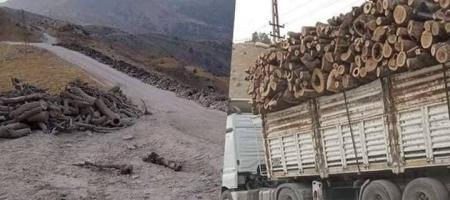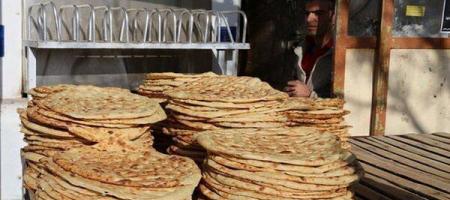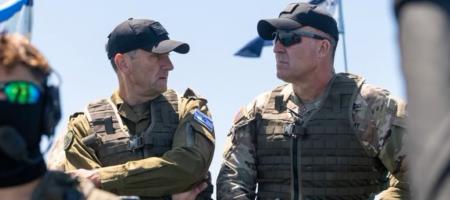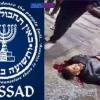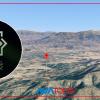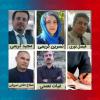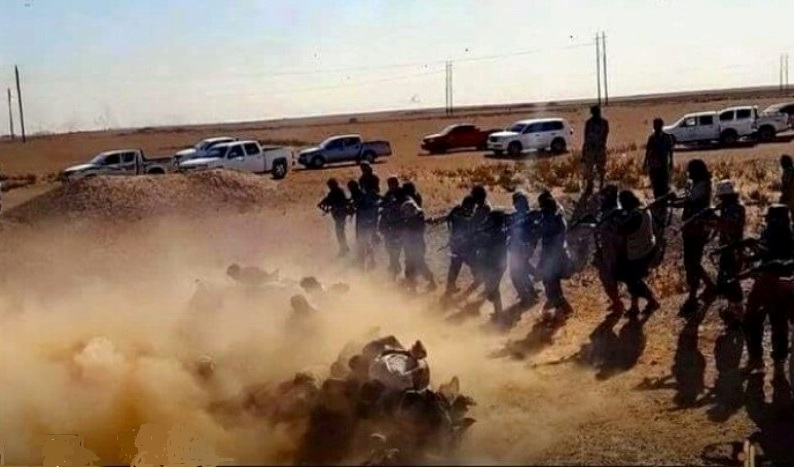
In recent weeks, Germany has denied asylum to more than 100 Ezidis. Under the Dublin Accords, many are told they will be deported to the EU country where they were first fingerprinted. To evade deportation, many are hiding. Increasingly, Ezidis are being told that they will be sent back directly to Iraq. In 2016, 97% of Ezidis received asylum in Germany, while only 52% received asylum in 2018. Many Ezidis threaten to kill themselves rather than return to Iraq.
Ezidis are an ethno-religious non-Muslim minority who were attacked by the Islamic State (ISIS) in Shingal, Iraq, in August 2014. Eleven thousand were killed or captured. More than 3,000 women and girls were used in sexual slavery. The remaining population of 400,000 remains displaced.
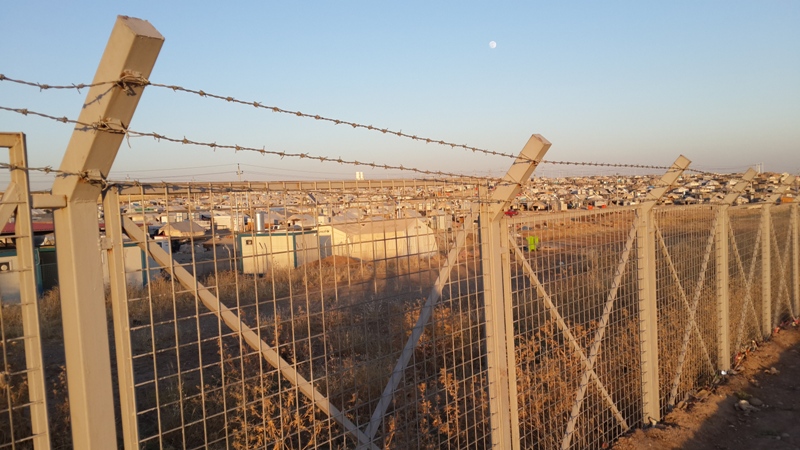
The European Parliament recognized the Yezidi genocide in 2016. Iraqi President Abadi declared the liberation of Iraq from ISIS on December 9, 2017. September 10, 2018, the United Nations High Commission on Refugees (UNHCR) stopped accepting applications for asylum in Ankara, Turkey, and Amman, Jordan. In November 2018, Greece deported 44 Ezidis before they could reach their destination of Germany.
The Yazidi Asylum Project
The Yazidi Asylum Project (YAP) was co-founded by Sareta Ashraph who authored the 2016 Commission of Inquiry on ISIS in Syria, “They Came To Destroy,” and Melinda Taylor, a human rights attorney. In October 2018, YAP convened its first meeting in Germany of international experts to discuss potential strategies for appealing asylum denials.
What happened to one Ezidi, happened collectively to every Ezidi in the world who now suffers psychological trauma. Iraq's declaration that ISIS is defeated is being used in Europe as justification to deport Ezidis, because courts assume the genocide is "finished." The genocide, however, is on-going.
In a recent asylum case the judge denied asylum because of reports stating that displaced Ezidis are returning to Shingal. He reasoned that if people are returning, Shingal must be safe.
The legal definition of genocide has eight stages. The eighth and final stage is denial. Germany, which has done more than any other country to grant asylum to Ezidis, has reversed itself and is now perpetuating the on-going genocide by denying asylum to Ezidis. Following are ten reasons why it is not safe for Ezidis to return to Iraq or to Shingal.
- FREEDOM OF EXPRESSION SUPPRESSED
Ezidis are not free to speak the truth in Kurdistan or Iraq. The policy for the Kurdistan camps for Ezidi internally displaced persons (IDPs) is to refuse entrance to journalists, photographers, and humanitarian organizations (NGOs). They must go through a lengthy process of getting permission. When a person goes to visit an Ezidi family, he or she is accompanied by a security officer to make sure they "do not talk about subjects that are not allowed such as Peshmerga or being abducted by ISIS."
In August 2018, a police officer in the Erbil airport confiscated the book, "The Last Yezidi Genocide" by Amy L. Beam, and destroyed it in front of the passenger's eyes because the first page shows a photo of Peshmerga fleeing Shingal ahead of the Ezidis on August 3, 2014.
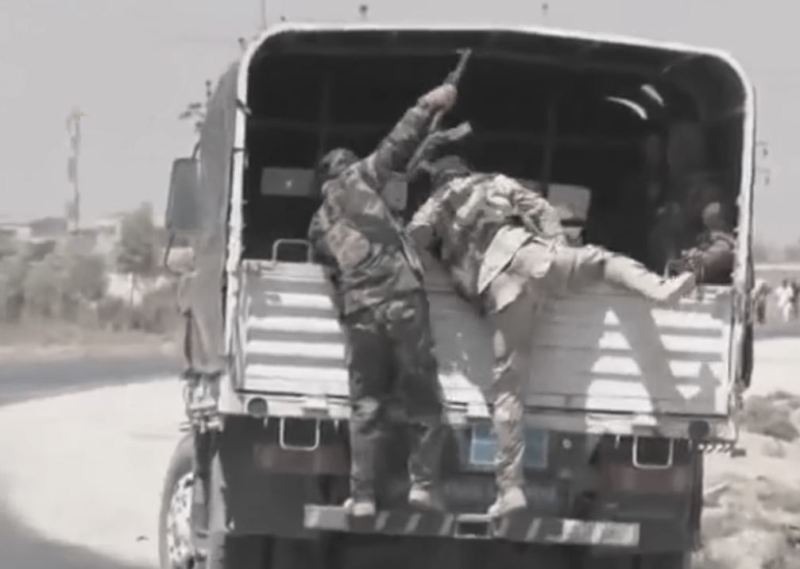
2. DRIVING TO SHINGAL IS DANGEROUS
The direct road from Kurdistan to Shingal, which takes two hours, has been closed since October 2017. The only way from Kurdistan to Shingal is through Mosul, a six-hour drive. Most Ezidis are afraid to go through Mosul, because it was the headquarters of ISIS where thousands of Ezidis were held captive. Ezidis believe ISIS militants still live there.
It takes 45 minutes to drive through Mosul en route to Shingal. Because of traffic jams and detours in Mosul, it is easy to attack a car when it is stopped in traffic. Cars from Zakho, Duhok, and Shingal, where Ezidis live, can be identified by their different license plate numbers.
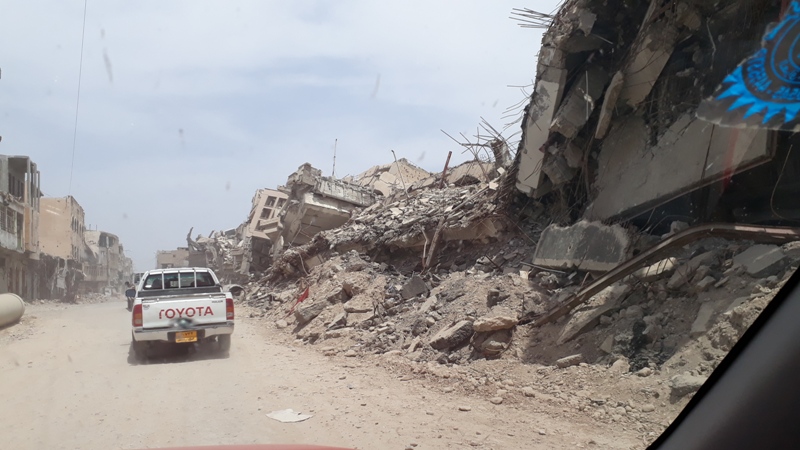
In October 2018, an Ezidi family driving through Mosul was stopped in their car. The attackers ordered the driver to give them one of the Ezidi girls. The driver refused and was beaten. The car was broken. Only police intervention prevented the girl from being abducted.
On October 23, 2018, a car bomb in Mosul killed six and injured 15 persons.
3. ARABS ARE RETURNING AS NEIGHBORS WITHOUT PROSECUTIONS
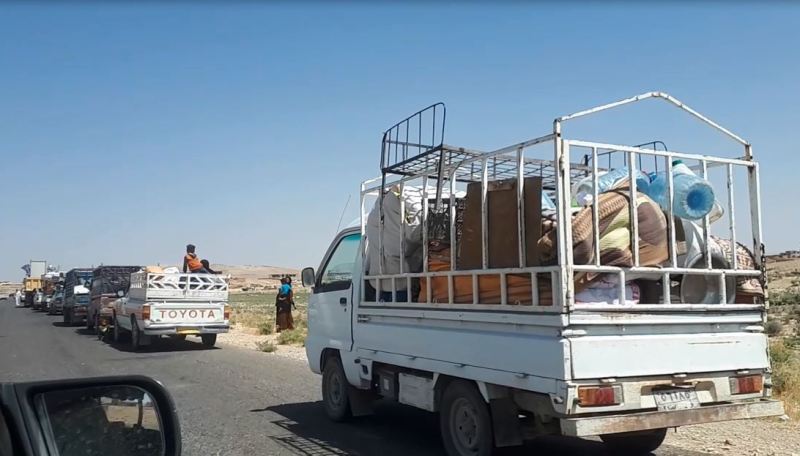
Arab villages are returning to Shingal under protection of the Iraqi Army after receiving security clearances. Many Ezidis swear they will not live near Arabs again, because many of their Arab neighbors participated with ISIS in attacking Ezidis in August 2014. Their trust of Arabs is broken.
Ezidis have no way to tell the guilty from the innocent, although many guilty have been identified by eye witnesses of the genocide. Ezidis demand that until the guilty are identified and prosecuted, they will refuse to talk to Arabs or consider reconciliation. The return of the Arab villages presents a dangerous and unstable security situation.
4. BOMBS IN VILLAGES AND FIELDS
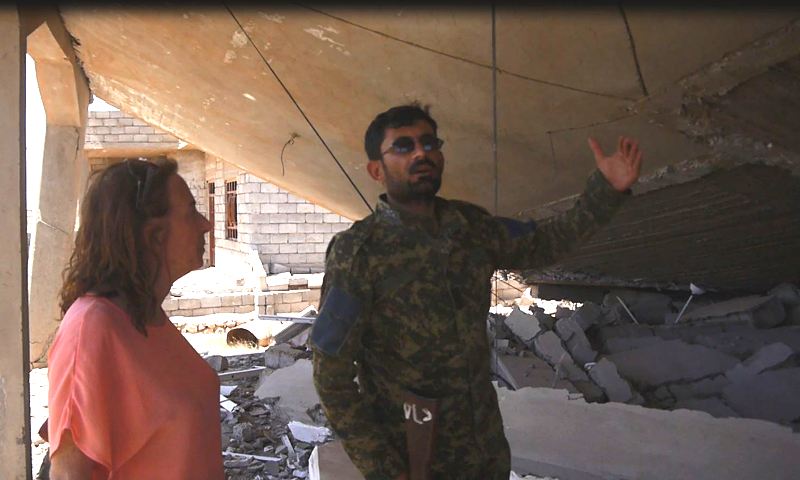
There are still unexploded bombs in the villages. More than twenty Ezidis have been killed by explosions while returning to their houses in 2018 including in Tal Banat, Tal Qassab, Siba Sheik Khudir, and Gir Zerik. Two foreign companies contracted to remove the bombs, stated they will delay demining operations in Shingal until the security situation is stable. The funding agency, United Nations Mine Action Service (UNMAS), ordered operations in Iraq to stop in early November 2018. A source from an NGO that has begun removing bombs on the south side of the mountain estimates it will take at least three years, and probably much longer, before the villages will be cleared of bombs and safe to return.
5. INFRASTRUCTURE AND HOUSES DESTROYED
The Ezidi villages on the south side of Shingal Mountain remain empty, except for a few families in Tal Qassab and Solagh. Many houses were exploded and thousands were burned on the inside. The plumbing and electrical wiring and fixtures were removed. Appliances were sold in markets by ISIS. All furnishings are gone. Doors are removed. Most windows are broken. The houses are uninhabitable. There is nothing to return to.
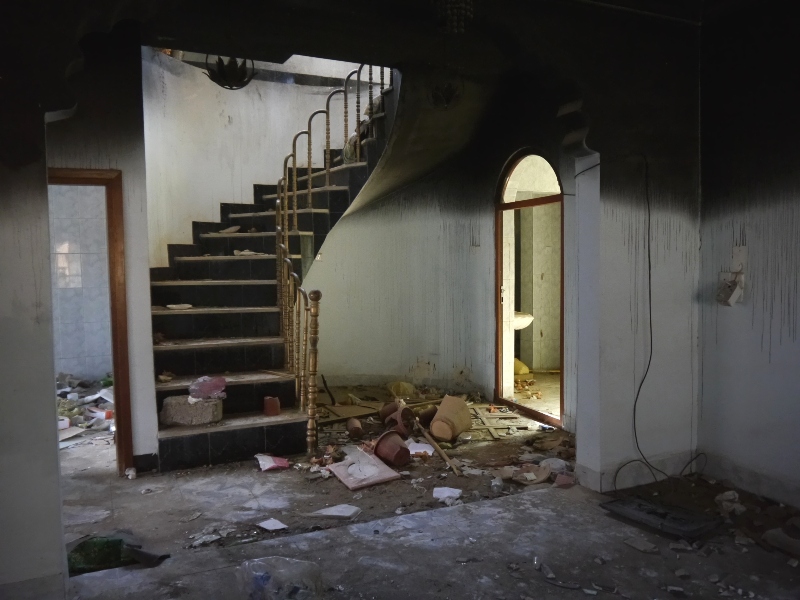
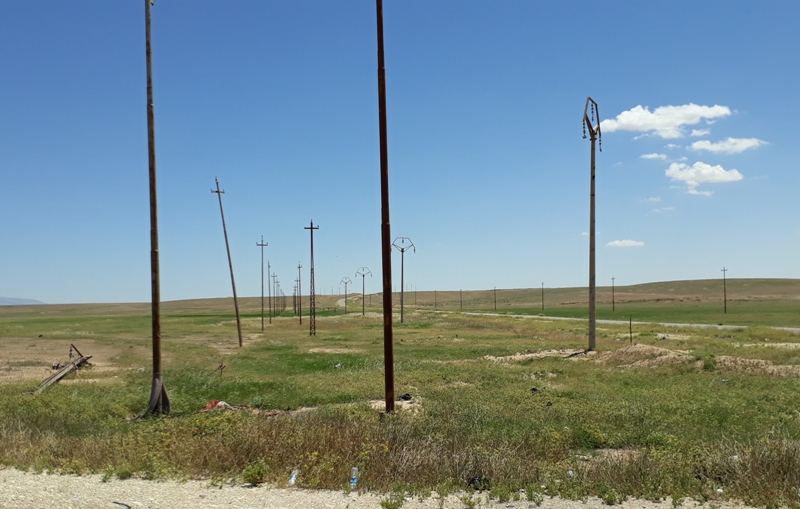
There are no potable water sources. Well water is muddy. There is no electricity in most of the villages south of the mountain. Electric cables on utility poles were removed. Cell phone towers and satellite dishes were destroyed. There is often no fuel at the gas stations.
Coalition airstrikes destroyed buildings ISIS used as headquarters, including schools, hospitals, government buildings, and chicken cooperatives. No families have been compensated. No Ezidis have been allowed to have deeds to their property since Saddam Hussein's dictatorship, so proving ownership will be difficult.
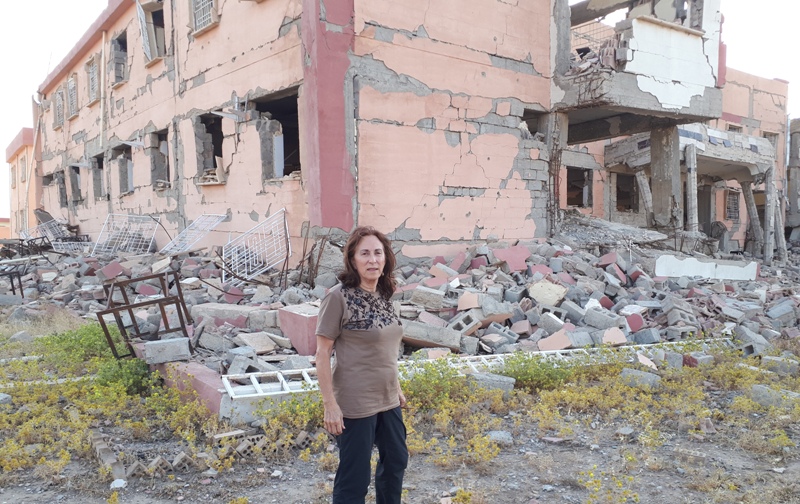
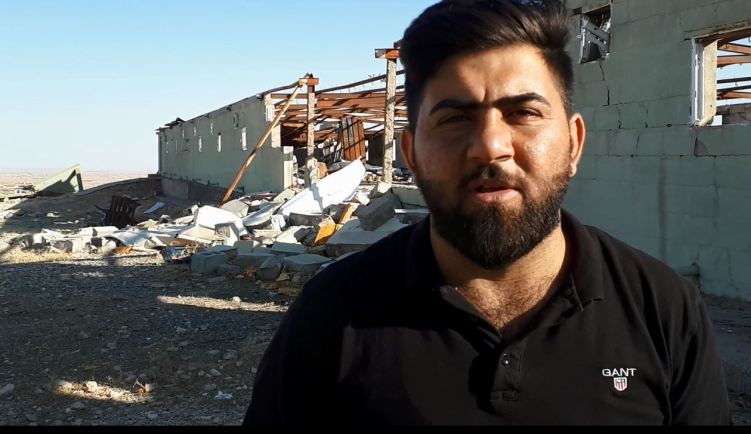
There is no economy in the villages. There is no way for Ezidis to sustain themselves. There are no visible signs of reconstruction projects.
A UNHCR report on October 23, 2018, stated "the conditions for sustainable return [to Shingal] have not yet been achieved and it is very important to continue to assist displaced people to avoid an early return to these areas, which could lead to further displacement."
6. TURKISH THREAT
The PKK rescued the Ezidis off Shingal Mountain in August 2014 and got them to the safety of Kurdistan and also Turkey, so they have wide support of Ezidis who will not force them to leave Shingal. Ezidis established an independent defense force called Sinjar Resistance Units (YBS) in August 2014. The PKK officially announced its withdrawal from Shingal on April 1, 2018.
Turkey, in its vow to destroy the PKK, flew air strikes in Shingal in April 2017 and again on August 15, 2018, killing Ezidi Mam Zeki, the PKK leader in Shingal. The international Coalition did not prevent the airstrike, because six months prior to the attack, the Coalition turned control of air space over to the Iraqi government.
Turkey has declared its intention to attack Shingal to destroy the YBS, whom they call PKK, if they do not leave. Many were born in Khanasor and are unlikely to leave. Turkey's threat to destroy the YBS in Shingal and take control must be taken seriously. Turkish airstrikes in Duhok province, Turkey, killed 18 people in 2018.
In Rojava, northeast Syria, the YPG/YPJ affiliate of PKK has consolidated forces with the Syrian Defense Force (SDF) fighting ISIS. The SDF is the only force fighting ISIS in southeast Syria. Turkey attacked SDF with airstrikes in October and November 2018 which forced SDF to suspend their fight against ISIS. This gives ISIS the opportunity to regroup and return again to Iraq.
7. POLITICAL CONFLICT AND INSECURITY
After the Iraqi border patrol withdrew from Shingal on July 14, 2014, Kurdistan's Peshmerga went to all Yezidi villages in Shingal supposedly to protect them from ISIS. In the early morning hours of August 3, 2014, Peshmerga forces withdrew from Shingal without a battle, exposing the Ezidis to the brutal shock and awe attack by the Islamic State. By 2 PM, Shingal was finished and under control of ISIS.
Ezidis do not forget or forgive this betrayal of the Kurds which allowed the genocide. The Peshmerga were reconstituted by 8,000 Ezidi volunteers who returned to Shingal.
The Popular Mobilization Forces (PMF), also called Hashd al Sha'abi, entered Iraq from Iran in 2014 with Baghdad government approval to fight ISIS. Many Iraqis joined them. In May 2017, Hashd al Sha'abi and the PKK took control of the Ezidi villages on the south side of Shingal Mountain. They were joined by several units of Ezidis who left Peshmerga to retake their own villages.
Although the Kurdistan referendum for independence passed on September 25, 2017, by 93%, governments of the world refused to recognize it. In October 2017, The Iraqi Army and Hashd al Sha'abi pushed Peshmerga out of the disputed areas of Kirkuk and Shingal back to the 2003 border of Kurdistan. The PDK administration in Shingal relocated to Duhok, Kurdistan.
Hashd al Sha'abi is officially under the Iraqi Ministry of Defense, but in reality it is under command of General Qasim Soleimani, commander of QUDS forces in Iran. It is divided into Shia, Ezidi, and Sunni forces. The Iraqi Army has replaced most of their checkpoints, but the Ezidi Hashd al Sha'abi remains, headquartered in Sinjar city.
The relationship between Kurdistan and Iraq remains strained. This is dividing the Ezidis living in Kurdistan from the Ezidis living in Shingal and preventing NGOs and humanitarian aid from reaching Shingal. The Nineveh (Mosul) regional council and governate have been isolated by Baghdad, receiving only salaries for one year. Reconstruction funds are not reaching Mosul or Shingal from Baghdad.
On October 31, 2018, the PDK-backed mayor, Mahama Khalil, and his administration tried to return from Duhok to Shingal city. This was by an agreement between Erbil, Baghdad, and the Nineveh council, but without consultation with the current Ezidi administration in Shingal. Ezidi residents and YBS blocked them from entering the city.
Shingal is militarily controlled now by the Iraqi army and police, Hashd al Sha'abi, and YBS. Many Iraqi Army forces in Shingal are Arab from the south of Iraq. They do not speak Kurdish and do not know the area. Many say they are there for their salaries only and will not risk their lives to defend Shingal.
Influence over the Iraqi Army is divided between Iran and the United States. Russia is also vying for a presence in Shingal. The governance of Shingal remains disputed. The security situation is in a dangerous and unstable stage. The cycle of military retreat and genocide could easily repeat itself if the entire displaced Ezidi population were to return before political and military stability is achieved.
8. RELIGIOUS PERSECUTION AND SHARIAH CONSTITUTION
Even with ISIS defeated, widespread discrimination against Ezidis persists in Kurdistan and Iraq by Muslims who did not join ISIS. Many Muslims refer to Ezidis as devil-worshippers. Many will not eat food prepared by Ezidis. Restaurants will not purchase fish caught by Ezidis and a range of other forms of discrimination, including job discrimination.
Both the Iraqi constitution (Article 2a) and the Kurdistan constitution (Article 6), make Shariah law, derived from Islam, the official law. The Kurdistan constitution states that it is not allowed to:
First: Enact a law inconsistent with the provisions of the fundamentals of Islam.
Second: Enact a law inconsistent with democracy principals.
Both constitutions establish equality before the law without discrimination based on gender, race, ethnicity, origin, color, religion, creed, belief or opinion, or economic and social status. In spite of this constitutional mandate protecting equal rights, Shariah law is mutually exclusive with democratic principles of equal rights for women. Both Kurdistan and Iraqi constitutions require Ezidis to be governed by Shariah law.
On May 16, 2018, an Ezidi woman named Faiza was declared by three Baghdad appeals judges to be the wife of a criminal who held her prisoner for one month, injected her with drugs, electrocuted her, and brutally beat and raped her. The accused criminal, Hikmat Bashur, was set free. She did not know him before being kidnapped and sold to him.
The Iraqi constitution which requires signed consent on a marriage contract by both husband and wife and two witnesses was disregarded. There was no marriage contract. Faiza's protest was disregarded. The charges of kidnapping, rape, and torture were never ruled on. With this precedence, no Ezidi woman who was abducted by ISIS and raped can hope to find justice in an Iraqi court of law.
9. ISIS IDEOLOGY STILL PRESENT IN IRAQ
A United Nations report from August 2018 estimates that between 13,000 and 17,000 ISIS fighters remain in Iraq.
A report on ISIS in Iraq released on November 5, 2018, produced by the Inspector General of the US Department of Defense (DoD) and a United Nations Security Council monitoring committee stated that "an effective clandestine ISIS organization has moved underground and is acting as an insurgency in both countries." The DoD reported that "in its assessment, Iraqi Security Forces would need 'years, if not decades' to become self-reliant."
10. TRAUMA AND FEAR OF ANOTHER GENOCIDE
Mohammad founded the religion of Islam in 622 AD on the principal of jihad: the requirement for every Muslim to convert the world to Islam. In 1400 years, Mesopotamia and modern-day Iraq has been converted from mostly Christian to 95% Muslim. The Ezidi population has been estimated to have declined from 23 million (some say 83 million) to one million with fewer than 400,000 Ezidis remaining in Iraq. Ezidis are 1% of the Iraqi population.
ISIS ideology is based on extremist fundamental Islam from the Salafist school of thought, strongest in Saudi Arabia. The Salafists and ISIS follow the extremist ideology of jihad.
In 2014, ISIS gave Ezidi men the choice to convert to Islam or be killed. An estimated 5,000 Ezidis were killed. ISIS quoted Islamic teachings that justified slavery and rape of women and girls and selling of young children. An estimated 6,000 women and children were enslaved and raped. Only half have been returned to safety. The boys were brainwashed with ISIS jihadi training. The babies were sold to Arab couples. Old women were shot. This was the 74th recorded genocide against Ezidis.
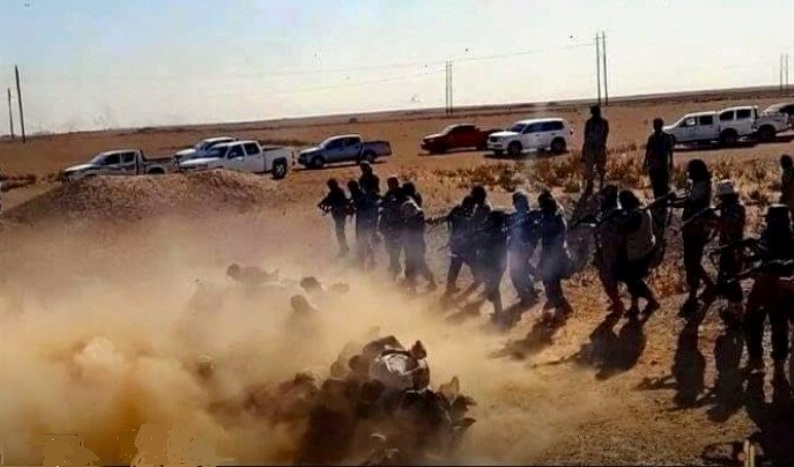
It would take willful denial of historical facts to believe that after 1400 years of Ezidis being massacred and converted, radical Islam will suddenly abandon its goal of jihad in Iraq. Ezidis have a well-founded fear of another genocide if they are forced to return to Shingal without their own self-administered region, international protection, compensation, and massive reconstruction funds, None of these conditions has been met. Ezidis lost Shingal and are now trying to save their families. Facing a fifth winter in camps, asylum in safe countries is their only solution.

